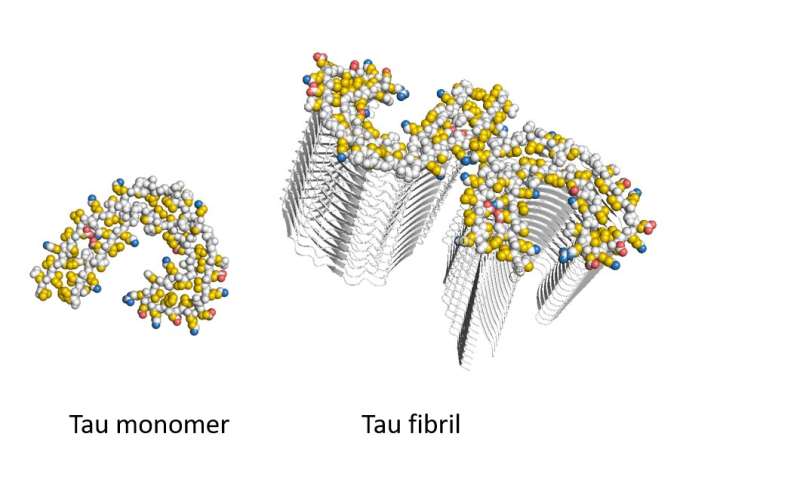
Utrecht scientists have uncovered how aggregates alter the behavior of Tau protein, known to play a role in Alzheimer’s disease. On a molecular level, the researchers have revealed why certain proteins tend to bind to Tau proteins. The key is the unusual way these proteins bind to Tau. The findings are published in Nature Communications.
The hallmark of Alzheimer’s disease is the death of neurons caused by aggregation of the Tau protein in the brain. Key is the formation of fibrils: long needle-like Tau protein aggregates. It is unclear, however, why these protein aggregations kills neurons. “There is no cure, simply because the molecular…


























